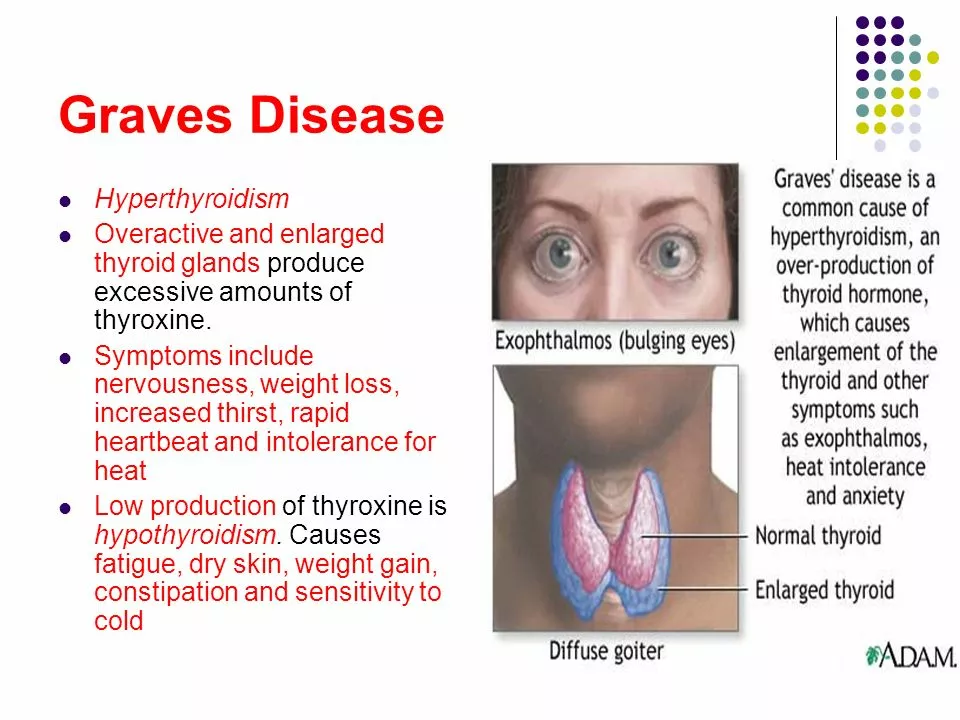Graves' disease — what it looks like and how to handle it
Think your fast heartbeat, weight loss, and bulging eyes are random problems? They can be connected. Graves' disease is an autoimmune form of hyperthyroidism that makes your body overproduce thyroid hormone. It most often hits adults under 40 and women, but anyone can get it.
Common signs to watch for: a racing heart, feeling hot and sweaty, losing weight despite a good appetite, shaking hands, trouble sleeping, and anxiety. Some people notice a goitre (a swelling at the front of the neck) or eye changes — redness, dryness, puffy lids, or the sense that the eyes stick out more than before.
Diagnosis is straightforward most of the time. Your doctor will check symptoms, do blood tests (TSH, free T4, free T3) and often look for antibodies called TSI or TRAb that point to Graves'. A thyroid scan or ultrasound may be used when the picture is unclear.
Treatment options
Treatment aims to bring thyroid levels back to normal and control symptoms. There are three main routes: antithyroid drugs, radioactive iodine (RAI), and surgery. Antithyroid pills like methimazole (and rarely propylthiouracil) reduce hormone production. They work well for many people and are usually the first step.
Radioactive iodine treatment destroys overactive thyroid cells and is common in adults. It’s quick and usually cures hyperthyroidism, but many people then need lifelong thyroid hormone replacement. Surgery to remove part or all of the thyroid is another option, often chosen for large goitres, suspicion of cancer, or when rapid control is needed.
While waiting for definitive treatment, symptom control matters. Beta-blockers such as propranolol reduce heart rate, tremor, and anxiety fast. Always follow your doctor’s dosing and warning advice.
Eye issues, pregnancy and other special cases
Graves' ophthalmopathy (eye disease) can be mild or serious. Smoking makes it worse—quitting helps. Mild eye symptoms improve with artificial tears and eye protection; moderate to severe cases may require steroids, radiation, or surgery to protect vision.
If you’re pregnant or planning pregnancy, tell your doctor. Treatment choices change: propylthiouracil is often preferred in the first trimester, then doctors may switch to methimazole. Untreated Graves' in pregnancy raises risks for both mother and baby, so coordinated care with endocrinology and obstetrics is essential.
Watch for danger signs: very high fever, confusion, severe rapid heartbeat, or vomiting could mean thyroid storm, a rare emergency that needs immediate hospital care.
Living with Graves' means regular follow-up and blood tests. Talk openly with your clinician about side effects of meds, the need for long-term hormone replacement after RAI or surgery, and strategies for eye care and lifestyle changes. If something feels off, call your doctor—early fixes are easier than late ones.
Need more practical tips or a checklist to bring to your next appointment? Save the symptoms list, lab questions, and treatment preferences so you get the right care faster.





